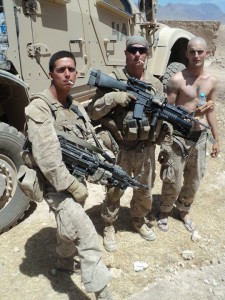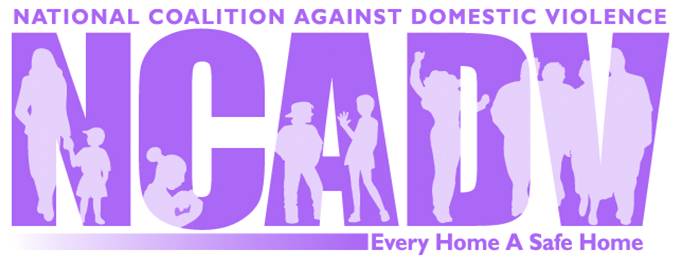 “The hardest part, by far, is to make the bad pictures go away. In war time, the world is one big long horror movie, image after image. If this is anything like Vietnam, I’m in for a lifetime of wee-hour creeps.” — Tim O’Brien, Vietnam Veteran.
“The hardest part, by far, is to make the bad pictures go away. In war time, the world is one big long horror movie, image after image. If this is anything like Vietnam, I’m in for a lifetime of wee-hour creeps.” — Tim O’Brien, Vietnam Veteran.
Assimilating back into an everyday routine is difficult for anyone who has been absent for a period of time. Have your ever gone on a long vacation and not driven a car for three weeks, then upon arriving back at the airport, gotten into your car, and noticed how strange it felt to put your car into reverse and pull out of the parking lot? Think for just a moment about how awkward it must be for soldiers returning from a combat zone to come back to the United States after being at war.
Soldiers returning from active duty in the military serving in the combat arms, especially if they have been in the Infantry or a “Grunt” (meaning someone other than a POG—Personnel other than Grunts), are more likely to experience difficulty regulating back into normal, resident existence than a Fobbit (soldiers who never leave the gates). Once these men and women are ready to leave the military and enter a civilian lifestyle, there are many adjustments to be made. I will list three of the Psychological and Social dilemmas faced by Veterans returning to society.
Psychologically, these Veterans are faced with numerous issues. Three of these issues include:
(1). Post Traumatic Stress Disorder (PTSD) affects many of the soldiers returning from war. This is the number one psychological problem. There are specific ways to assess and diagnose PTSD symptomology for combat Veterans. Treatment methodology may vary, according to individual needs of the Veteran, as there is no “one cure fits all.” Cognitive behavioral intervention has proven to be effective over a prolonged period of time, as has psychotherapy.
(2). Panic attacks can be set off by any reminder of the trauma the soldier endured during their line of duty. Firework displays may be beautiful to the general public, but to a soldier, this sounds like gunfire and Javelin tank missile.
(3). Flashbacks are the “trademark” of PTSD. The terror of war can return months, years, or decades later at the drop of a dime. A stressful experience can bring back the flashback.
Socially, our Veterans who are returning to civilian life have a challenging time adjusting, as well. Three of the issues they face are:
(1). Veterans cannot talk with the normal civilian when they are troubled. Let’s face it. You, nor I, have seen, heard, or experienced what a combat soldier has done. Only those who have “been there, done that” truly understand with empathetic hearts what that soldier has been through. Do not ask a soldier or Veteran what he or she did or what he or she saw while they were at war. This would be insulting and one of the most stupid things you can say to a Veteran. If they want to talk about it, they will. And if they do, just listen. You don’t have to say a word, except perhaps suggest they seek professional help if they need it (and trust me, most do).
(2). Hypervigilance is both psychological (a pattern under PTSD) and a social problem for the warrior upon returning home. The Veteran is constantly hypervigilant to the point of noticing all smells, scoping out a crowd for the one who appears to dressed differently (we may think someone dressed to the nine in a jacket is handsome, whereas the soldier is thinking, “What is underneath that heavy jacket?”), when they do close their eyes, a soldier’s ears begin working overtime because this is what they have been trained to do, and a soldier is always searching for the nearest door and exit route in every room. A soldier has been trained to be “on guard” at all times, so letting down his or her guard, just because they are back in society, does not mean this will come easy for them.
(3). Acceptance and integrating, in general, will be difficult for the Veteran upon returning home. During the Vietnam era, the returning soldiers were hated and loathed because of the war. Now, with the return of our soldiers, they are welcomed with open arms. This attitude surely helps, but please remember, the soldier must train himself or herself to go from warrior mode to civilian mode. What we, as civilians, take for granted and as normal, everyday routine, will not be normal to the Veteran for a long time. When we are stopped in our car, not moving on six lanes of traffic during rush hour, we know this is because of a wreck up ahead or due to a traffic jam. The returning soldier is instantly thinking, “How can I get out of here—where is my escape route?” If you live in a large city and are stopped on an extended bridge due to traffic, you accept the fact you could be in your car for three hours and shut it off while waiting. The Veteran is wondering where the IED (roadside bomb) is.
Hopefully, those three bullet points each for psychological and social aspects of blending back into society helped you understand what it is like for a soldier to return home and why they may struggle. As one who cares for Veterans, try to remember that assimilating back into normal, run-of-the-mill routines is not going to be easy for the soldiers who are returning to civilian lives. We must be sensitive to their needs. When Veterans say they do not feel like going out into a large crowd or party, please understand they may be having a stint of hypervigilance that day and just do not feel like being in a crowd.
Above all, patience is the key in helping Veterans cope with returning to civilian ways of life.
©Copyright – Gayle Joplin Hall, PhD. All rights reserved worldwide. None of this material may be downloaded or reproduced without written permission from the author.















First, please let me say that in NO way, was I trying to be disrespectful to ANY of our Armed Forces or anyone who has served in the United States military, front line in combat, or not. My article was written with thoughts of those who served directly in the line of combat. Nevertheless, this was NOT meant to disrespect anyone who has ever served for our Country. I just want to get that out and set the record straight right now. Whew!
As my opening paragraph painted the picture of being gone on “vacation” and then trying to just drive a car if you haven’t done so for a while, it feels strange, right? The soldier returning home has NOT been on any vacation and there is no comparison. For the average reader and those of us who have never fought in a war zone, that is why I made that analogy. Again, no disrespect is meant to be shown to any soldier. My point is simply to declare that it is difficult to get back in the swing of things if you have been gone for a while.
For the Veteran who is leaving the military lifestyle, oh my, what an adjustment they will have to make. When I was a Professor, I counseled many soldiers who were in college trying to figure out the rest of their lives as civilians. In the military, the Veterans were used to being told what to do, where to go, when to do everything, that even choosing what classes to take and when to take them were too much to handle. It was instant overload. I saw this time and time again. As a result, I developed a blended program for soldiers at the college I taught for, especially for soldiers so they could take multiple courses with each other and be in classes together. This was presented to the President of the Campus I taught for. The College did not end up “doing” my unique blended program for soldiers and now, another College only 15 miles from me has successfully implemented a similar program for Veterans. Brilliant idea.
Quite often, the soldier may think he or she has no skills and is now unemployable. This is untrue. The soldier needs a boost of self-esteem and Career Strategy. I have personally worked with many. We sit down,one-on-one,thoroughly investigate their skill-set from looking at what they achieved in the military, and then crank that back out into skills that can be applied in today’s marketplace. A new resume is prepared and the Veteran is employable. Wah-lah!
The Veteran has many adjustments to make upon reentry to civilian lifestyle, both on the psychological and social scale. I hope you read the entire article above. Perhaps this will help you understand maybe even just a little bit, what goes on inside the mind of a returning soldier.
How could you help a soldier adjust to civilian life after serving our Country? What does your city or town need to do to help our returning soldiers and their adjustment?
Be sure to read the blog before and after this one on soldiers…
Please feel free to leave comments. I want to hear from you and so does everyone else! Thank you.
Shining my love your way, Dr. Gayle J. Hall
I came home March of 93. The longest that I have been able to hold a job is 10-12 months. I have times of anger, other times of being very emotional. Still to this day when I go to a public place to eat I try to find a seat where my back is to the wall.
developed trust
I was an Infantry Sgt with 27 months total in Iraq and Afghanistan and i did not find your article disrespectful in any which way. I was in Sadre city Iraq from 2007-2009 and Tangi valley Afghanistan from 2010-2011, I have accumilated quite a bit of actual combat experience. I have TBI and its like having your brain rewired it’s difficult to articulate, my issue is not being able to relate on most topics cause the way I see it is I have acquired a new and larger view of the world and not as easily persuaded by bullshit and in my opinion a deeper and closer view in life. With my work ethic and knowledge I have had to dumb myself down just so others aren’t offended by me or so that I can hold a simple conversation and it is extremely difficult and self degrading. Another issue is how the normal world works on a set timeline like robots and is uncomfortable to bump out of that. Going through what i did is like climbing mtn everest and now in the normal world I’m surrounded by hills not even mtns so i find it difficult to motivate myself as I see no more mtns worth my attempt as their is no honour or true personal gain.
Thank you, DR. GAYLE J. HALL.
I am a daughter of a Vietnam Veteran. He served in the Army for 21 years. My father, Mr.Jimmie Ray Kirk.
He had a severe case of PTSD. When he came back from war his soul had been crushed. He saw stuff that a lot of people wouldn’t be able to handle. He couldn’t handle the horrible images of war he was left to deal with.
That is where PTSD comes in…As much as I adore and love my father, he was my mother’s worse nightmare …He never got any help to deal with his PTSD back in the 60’s 70’s 80’s. Soldiers received little or no help…
I’m happy that you, Dr.Hall, wrote a article on PTSD. You are educating others how PTSD hurts and it does effect our soldiers and their families.
Thank you again, I really enjoyed your article on PTSD!
-Anita Kirk
Hi Anita: Thank you so much for writing. I know that was difficult for you to write this note to me and for others to read as well. I applaud you for being so brave to do so, because now, you have become a teacher for others who are reading your words!
I wish that I could tell your father in person, “Thank you, Veteran Kirk, for serving our Country.” Our Vietnam Vets had it very tough when they came back from war. I know many, and believe me, they were not treated kindly, nor were they considered to be heroes, as soldiers are now. They were spit on as they walked through airports or down the streets. Many came back to find nobody waiting for them.
You are correct when you say that from the 60’s-80’s, soldiers received no help for PTSD. I would take that one decade further and state there was little help or knowledge, even in the 90’s. Doctors are just now learning more and more about PTSD. It is urgent that soldiers, and their families, understand the symptoms of PTSD and receive the proper care, so all can cope upon the soldier’s return from war.
Again, thank you for writing and enduring the secondary trauma of PTSD. You are a survivor, and we all learned from your story. God bless you.
Shining my love your way, Dr. Gayle J. Hall
Hi Gayle,
Great article, thank you for sharing!!!
As one that had served in the Marines on the tail-end of Vietnam, with a dad that also served 22 years in the Army, seeing Korea and Vietnam twice, I’ve seen the lasting effects of war up close.
My recent 5 year experience of working in Iraq has given me an even greater sense of awareness regarding the challenges that our combatants face upon their return.
It’s going to take all of us working collectively to manage this crisis as it continues to unfold as a result of these two wars!
Thanks for what you’re doing.
Warm regards,
Bennie
Hi Bennie: Thank you for serving as a Marine for our Country. Prayers and thanks also, for your father for his 22 years of service in the Army. Wow – 22 years and twice deployed to Vietnam…I know that you truly have, “Seen the lasting effects of war up close” as you stated in your reply above.
You nicely summed it all up by declaring that it will take collective work by all of us to manage this crisis – and that is what the adjustment period is after war – still, a crisis period, trying to calm down to a normal, civilian lifestyle.
I appreciate your comments and again, God bless you for being a Marine.
Semper Fi!
Shining my love your way, Dr. Gayle J. Hall
Simply want to say your article is as amazing. The clearness in your post is simply nice and i could assume you are an expert on this subject.
Fine with your permission allow me to grab your feed to keep updated with forthcoming post. Thanks a million and please continue the gratifying work. |
Thank you for your compliments. I am an expert in this area.
It is NOT “fine to grab my feed” with upcoming posts. You are, however, welcome to write and ask permission to repost an article of mine, since all of my work is original and copyrighted.
You did not provide me with a name, either, so that makes it difficult for me to address you properly. All my best.
Shining my love your way, Dr. Gayle J. Hall
Hello. I just found this blog post. I am researching what someone 10 years out of the military…after fighting in a war…might experience a decade later. This is a great article! But you mention the one before and after also deal with soldiers. Could you provide links for those articles, please? Thank you. 🙂
It’s very difficult, civilian life. I served in the Army and deployed the first few deployments of Iraq. I was diagnosed with PTSD and life has been hell since getting out. I don’t seem to get how to fit in with civi’s. Anxiety, depression, anger, fear, hyper vigilance and more. Drug abuse to try and make both the physical and mental pain stop. I did get clean, however, it just means one has to face their problems head on and buy stock in Motrin. I’ve not been able to hold a job more than about a year. Class rooms are too crowded. And relationships? No woman wants to put up with all that baggage. So if I’ve had a relationship it’s not been for long. I pray for someway of finding a decent path. But so far it’s looks like one big 150 pound ruck march.